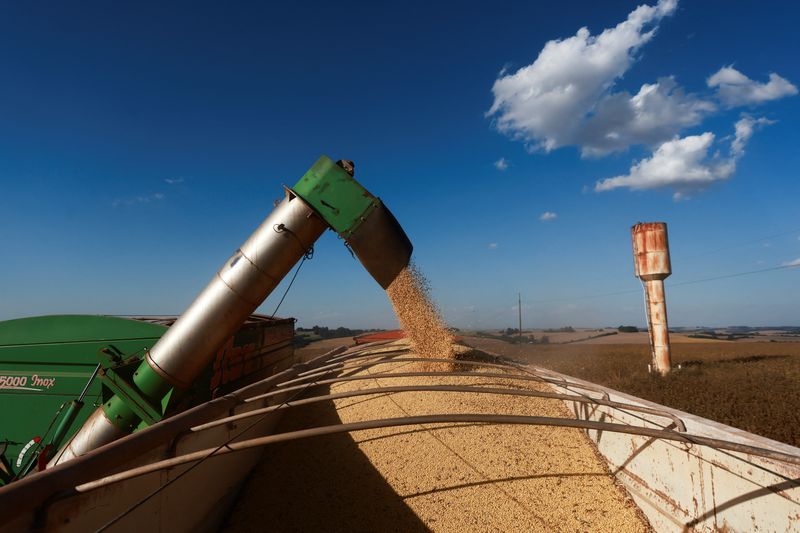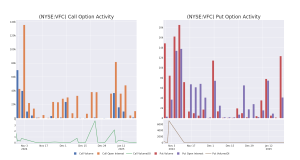
By Laurie Chen, Mei Mei Chu, Ella Cao, Naveen Thukral and Ana Mano
BEIJING/SAO PAULO (Reuters) -China, the world’s biggest soybean buyer, has stopped receiving Brazilian soybean shipments from five firms after cargoes did not meet plant health requirements, according to a statement from the Brazilian government confirming what Reuters had learned from two sources on Wednesday.
The phytosanitary-related suspension comes as Brazil has been bolstering its share of the world’s biggest soybean market at the expense of the No. 2 exporter, the United States.
It’s also an unexpected twist in the global agricultural supply chain, as U.S. President Donald J. Trump’s threats of renewed tariffs against Chinese imports have increased geopolitical tensions between the world’s top two economies.
The Brazilian agriculture ministry said the “non-conformity” notice it received from China’s General Administration of Customs (GACC) refers to five Brazilian companies, which the ministry did not name.
One of the sources told Reuters that since Jan. 8 Brazil has suspended shipments to China from Terra Roxa Comercio de Cereais, Olam Brasil and C.Vale Cooperativa Agroindustrial.
On Jan. 14, Chinese customs suspended shipments from Cargill Agricola SA and ADM do Brasil, that source added.
Olam, Cargill and ADM together accounted for about 30% of the more than 73 million metric tons of soybeans shipped from Brazil to China in 2024, according to data from shipping company Cargonave Group.
However, Brazil’s agriculture ministry said only a small volume of soybeans were affected and the impact on the country’s exports was minimal.
“The companies’ units were suspended, but other units of the same companies can continue exporting,” said Luis Rua, the Ministry of Agriculture’s secretary of commerce and international relations.
Archer-Daniels-Midland Co, the parent company of ADM do Brasil, declined to comment. Cargill Inc, the privately-held U.S. grain trading giant and parent of Cargill Agricola SA, also declined to comment.
Juliana Basso de Araújo, owner of Terra Roxa Comercio de Cereais, declined to comment. The parent firms of the other two affected companies did not respond to Reuters’ requests for comment.
China’s GACC did not respond to a request for comment.
“When we try to process clearance on customs’ website for soybeans shipped by these five companies, we are not able to proceed,” said a second source, a trader at a China-based soybean crusher.
Countries typically require imported or exported agricultural goods to be inspected to ensure they are free of pests and diseases, to protect local food supplies.



